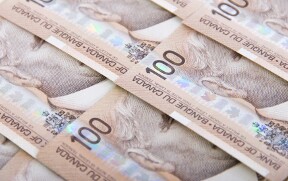The Canadian dollar fell against its major peers on Monday despite the rally of Canada’s most important export commodity — crude oil.
Prices for crude oil rallied more than 3% during Monday’s session, but that did not reflect on the Canadian currency. Usually, the loonie moves in tandem with the commodity, but this time it broke away, falling even as crude was rising. Concerns about the outcome of the US presidential debates were dragging the Canadian dollar down (as well as the US dollar and the Mexican peso).
The speech of Stephen Poloz, Bank of Canada Governor, was not helping the matter as he stressed the growing importance of cross-border integration (which may suffer if Donald Trump wins the presidential elections):
Models that do not recognize rising integration are likely to predict that monetary policy actions will be more effective at stabilizing the economy and controlling inflation than they will prove to be in practice. Policy-makers need to acknowledge that international developments will have an influence on their economies.
He also said that the integration may make it hard for policy makers to pursue inflation targets and choose appropriate policy:
Analysis produced using the Bank of Canadaâs main policy model shows that maintaining inflation targets can be more challenging when integration is high, because it may require more variability in interest rates, the exchange rate and the output gap for the same series of macroeconomic shocks.
USD/CAD rose from 1.3157 to 1.3229 as of 23:57 GMT today. EUR/CAD jumped from 1.4767 to 1.4880. CAD/JPY tanked 1.1% from 76.69 to 75.84, trading near the lowest level since June 2012.
If you have any questions, comments or opinions regarding the Canadian Dollar,
feel free to post them using the commentary form below.
